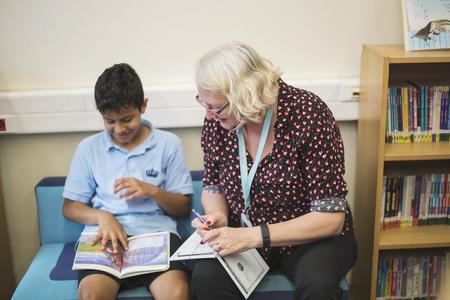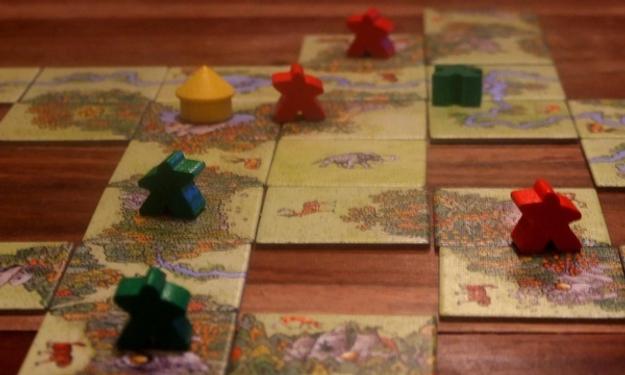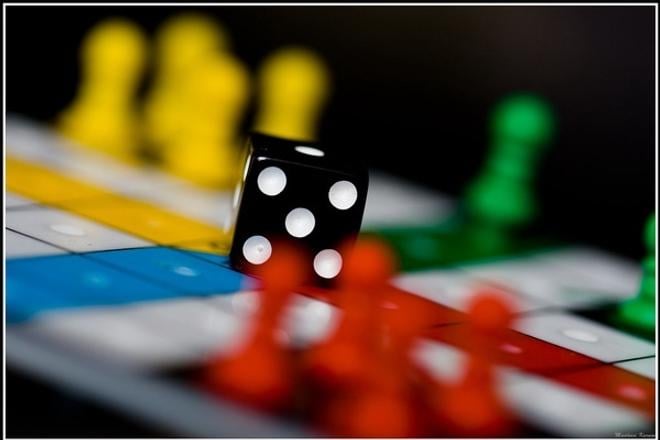What links the River Aude in southwest France, slum landlords and Covid-19? Answer: Games! (explanation at the end)
In most schools the sound of games stretch from the ubiquitous music of Kahoot to the triumphant call of ‘BINGO!’ from the Biology lab when someone finally gets all the keywords.

In schools that embrace games, you can hear ‘OK, I’ll trade you 2 sheep for 3 logs, just don’t build a settlement next to me’ or ‘Sir, we invaded Belgium, now we’re beginning the assault on Ardennes’ and ‘Miss, I convinced everyone Natalie was the werewolf and they executed her. I was the werewolf all along. Ha!’. And hearing ‘Miss, we’ve finished building the colosseum, can we release the polar bears now?’ might make you think you were in an eccentric re-imaging of Spartacus, instead of a history lesson. In fact, these are brilliant examples of Game Based Learning (GBL) in action. And having witnessed scenes similar to these in our school, I can tell you it works.
So what is the difference between these two examples?
Firstly, there is the matter of Game Based Learning vs the Gamification of learning. The first is an example of Gamification, where the game is adapted to fit a lesson objective. The game lacks depth, relying on extrinsic motivations like badges or points, to encourage student engagement. The sole goal is to gain points and therefore the challenge, like the opportunity for student agency, is severely limited.
Conversely, GBL uses the game itself to teach a concept, develop a skill or improve student understanding. The learning is now far deeper and innate without losing its power to produce the desired effect. Motivation is more intrinsic, the challenge more pronounced and the goal becomes the game.
 (source: British International School Bratislava)
(source: British International School Bratislava)
There are 3 main preconceptions that surround the use of Game Based Learning:
1. Games only have entertainment value and no long-term use in education.
Games have been shown to improve Higher Order Thinking Skills, such as the analysis and evaluation in games like Risk or Diplomacy or creativity in Dixit and Azul. We introduced Minecraft into the British International School of Bratislava this year precisely because of its problem-solving theme, and the engagement and motivation of the students has been palpable. When we use games like this in class, students are acutely aware of their progress and express it through challenges faced, experiences of failure, how they overcame them and they will be constantly improving without ever considering the dreaded test at the end of the learning cycle. But do they learn anything useful? Yes! Plenty.
2. Games do not easily fit the curriculum we teach as they are too abstract.
Simply put, games are the curriculum. We can teach the Scientific Method through the game of Eleusis (and a pack of playing cards), probability with Yahtzee, and delve into what it means to be an outsider with Ultimate One Night Werewolf. Games, like the best education, are learning experiences which offer students the freedom to explore, to fail safely and above all to learn that their actions have consequences, all in a safe environment.
3. Games have no relevance to the wider world that we are educating students to enter.
In an ever-changing world, I love nothing more than to play Fluxx with students at our school and show them first-hand how unpredictable the world can be. And then there is the game that can inspire dread in many, originally called The Landlord Game, we know it now as Monopoly! The true aim of Monopoly is assumed to be ‘get rich quick’, where in fact it is to bankrupt all of your opponents, providing a spectrum of learning experiences for all ages.

For me, the most amazing aspects about games is their ability to induce a state of deep concentration in what the Taoists and Hungarian-American psychologist Csikszentmihalyi refer to as ‘Flow’, described as “when thoughts, intentions, feelings, and all of the senses are focused on the same goal”.
And what teacher would not want that for their students?
(And to answer to my question at the start, the games are: Carcassonne, Monopoly and Pandemic)
Nial Pickering is Science and Mathematics teacher at the British International School Bratislava.
Author: Nial Pickering


 Games, like the best education, are learning experiences which offer students the freedom to explore, to fail safely and above all to learn that their actions have consequences. (source: British International School Bratislava)
Games, like the best education, are learning experiences which offer students the freedom to explore, to fail safely and above all to learn that their actions have consequences. (source: British International School Bratislava)